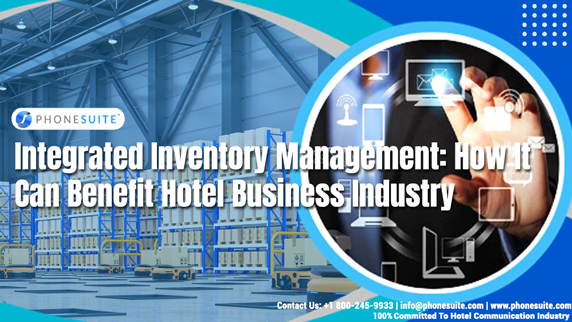As a hotel owner, you already know that managing room inventory and availability is key to your profits. Smart hotel inventory management gives you real-time visibility into bookings, costs, and revenue, while reducing the manual work that slows your team down. When inventory management in the hotel industry is done right, you can update prices and availability with confidence across every channel and offer guests a smoother booking experience. In this post, we’ll look at how better inventory management can boost your hotel’s performance and your bottom line.
Key Takeaways
- Hotel inventory management covers everything your hotel needs to run smoothly – not just rooms, but F&B, housekeeping supplies, toiletries, and more.
- A hotel inventory management system helps you track stock in real time, automate reordering, plan demand, and generate reports so you can make smarter decisions.
- Done right, inventory management in the hotel industry reduces waste and costs, prevents stockouts, boosts operational efficiency, and improves the guest experience.
- Choosing the right system means understanding your hotel’s needs, checking core features and ease of use, and weighing integrations, scalability, support, and total cost.
What Is Inventory Management In The Hotel Industry?
How Can An Inventory Management System Help Hotel Business Owners?
Automated Reordering
Cost Control
Waste Reduction
Streamlined Processes
Regulatory Compliance
Security
Features Of A Hotel Inventory Management System
Real-Time Inventory
Centralized Procurement
Forecasting & Demand Planning
Automated Replenishment
Key Benefits of Hotel Inventory Management Systems
Improved Inventory Control
With inventory management systems, hotel business owners can track their inventory levels in real time and make informed decisions about when to order new stock. This helps reduce the risk of overstocking or understocking, which can lead to lost revenue or waste.
Better Cost Control
By optimizing their procurement and logistics processes, hotel business owners can reduce their costs and improve their bottom line. By centralizing their procurement process and working with approved vendors, they can negotiate better deals on bulk orders and reduce their overall procurement costs.
Enhanced Guest Experience
By ensuring that the right products and supplies are always in stock, hotel business owners can provide a better guest experience. For example, guests are more likely to return to a hotel that always has their favorite toiletries or snacks in stock.
Increased Operational Efficiency
By automating their inventory management processes, hotel business owners can reduce manual labor and increase their operational efficiency. Automated replenishment, for example, can help ensure that items are always in stock when needed, without the need for manual intervention.
Data-Driven Decisions
By using data analytics tools to generate reports on inventory levels, procurement costs, and other metrics, hotel business owners can make data-driven decisions and identify areas for improvement. This can help them optimize their inventory management processes and improve their overall business performance.
To implement an inventory management system in their hotel business, hotel owners can leverage the power of technology and software solutions. With the help of inventory tracking systems, demand forecasting algorithms, and data analytics tools, hotel owners can collect and analyze data from various sources in real time. This helps them identify trends, make informed decisions, and optimize their inventory management processes to improve efficiency and profitability.
How To Implement An Inventory Management System?
An inventory management system can be a game-changer for businesses looking to streamline their operations. The key to successful implementation lies in following a few important steps:
Step 1: Identify your Inventory Needs
Determine what items and supplies your hotel needs to keep in stock, and prioritize them based on demand.
Step 2: Select The Right Technology
Choose software and technology solutions that are tailored to the specific needs of the hotel industry. This includes inventory tracking systems, demand forecasting algorithms, and data analytics tools.
Step 3: Train Staff
Train staff on how to use the new system and ensure that they understand the importance of inventory management in improving the overall guest experience.
Step 4: Regularly Review & Update
Regularly review and update your inventory management processes to ensure that they are aligned with the changing needs of your hotel and the demands of your guests.
By using a hotel inventory management system, owners can streamline daily processes, cut costs, and boost overall performance. The right items are in stock when needed, waste and lost revenue are reduced, and guests enjoy a smoother experience. With the right software, hotels can level up their operations and stay ahead of the competition.
How To Monitor & Manage Your Hotel’s Inventory Effectively
Effective inventory management is crucial to the success of any hotel operation. Without proper oversight, wasted resources and lost revenue can quickly pile up. To avoid this, it’s important to have a solid strategy in place for monitoring and managing inventory.
Monitoring and managing inventory effectively is critical to the success of any hotel business. Here are some strategies that hotel owners can use to monitor and manage their inventory more effectively:
1. Set Inventory Goals
Establish specific goals for inventory levels and turnover rates. This will help you track progress and identify areas for improvement.
2. Use Inventory Management Software
Invest in inventory management software that can help you track inventory levels, manage orders, and automate replenishment.
3. Conduct Regular Physical Inventory Counts
Regularly conduct physical inventory counts to ensure that your inventory levels match what is recorded in your system.
4. Analyze Demand Patterns
Use data analytics tools to analyze demand patterns and forecast future demand. This will help you optimize your inventory levels and reduce the risk of overstocking or understocking.
5. Work With Trusted Vendors
Develop relationships with trusted vendors who can provide quality products at competitive prices.
6. Establish An Inventory Control System
Establish an inventory control system to track inventory movements, monitor stock levels, and ensure that inventory is properly stored and organized.
7. Implement FIFO
Implement the First-In-First-Out (FIFO) method of inventory management to ensure that older items are sold or used first, reducing the risk of spoilage or waste.
8. Monitor Waste
Monitor waste levels and identify areas where waste can be reduced. This can include implementing portion control measures, reducing over-ordering, and donating surplus food to charity.
9. Review & Adjust Inventory Policies
Regularly review and adjust your inventory policies to ensure that they are aligned with your business goals and the needs of your guests.
By implementing these strategies, hotel owners can monitor and manage their inventory more effectively, reduce costs, and improve the overall guest experience. Effective inventory management can help ensure that the right items are in stock at the right time, reducing the risk of lost revenue or waste, and enhancing the guest experience.
How Do You Choose a Hotel Inventory Management System?
Understanding Your Hotel’s Needs
Choosing a hotel inventory management system starts with clarity on what you stock and who needs access. List your key categories (F&B, housekeeping, minibar, spa, etc.), how many outlets you have, and which teams will use the system. This keeps you from overbuying features you don’t need.
Focusing on Core Features
A good system for inventory management in the hotel industry should give you real-time stock levels, low-stock alerts, easy purchase order handling, and basic reports on usage, cost, and waste. For larger hotels or groups, built-in forecasting and demand planning are a big plus.
Prioritizing Ease of Use
If your team can’t use it easily, they won’t use it at all. Look for a clean, intuitive interface where receiving goods, updating stock, and checking levels feels straightforward. Training should be quick, not a multi-week project.
Considering Integrations
Where possible, choose a hotel inventory management system that connects with your PMS, POS, or accounting tools. When systems share data, you reduce manual entry, cut errors, and get a more complete picture of how sales and occupancy affect stock and costs.
Evaluating Reporting and Analytics
Strong reporting turns hotel inventory management into real insight. You should be able to see fast- and slow-moving items, track cost of goods, and spot waste or shrinkage quickly. Easy-to-export reports make better budgeting and purchasing decisions much simpler.
Checking Scalability
Make sure the system can grow with you. As you add outlets, services, or new properties, it should handle more users and locations without needing a full replacement. Scalability protects your investment over the long term.
Looking at Support and Total Cost
Finally, look at the vendor, not just the software. You want hospitality-aware support, clear onboarding, and quick help when issues arise. Weigh subscription, setup, and add-on fees against the savings you’ll gain from less waste, fewer stockouts, and tighter purchasing control.
Give Take Your Hotel Operations Further With Phonesuite
The possibilities of PhoneSuite’s comprehensive hospitality products and services are endless. PhoneSuite provides a unique, efficient, and secure solution that can streamline the day-to-day operations of any business, whether small or large. No matter the size or complexity of your organization’s needs, PhoneSuite has proven itself to be a reliable provider that puts customer satisfaction first.
With its easy setup and intuitive interface, users can quickly become accustomed to their personalized PhoneSuite system. If you’re interested in learning more about how PhoneSuite can revolutionize your business, contact us today and inquire about our exclusive pricing options and system customizations! We look forward to helping you elevate your operations and step ahead of the competition.
Hotel Inventory Management System FAQs
What is inventory management in a hotel?
It’s the process of tracking and controlling everything a hotel needs to operate smoothly – rooms, F&B, linens, amenities, cleaning supplies, so the right items are available at the right time and cost.
How does hotel inventory management affect guest experience?
When stock is well managed, guests always find rooms ready, amenities available, and F&B items in stock. Fewer “sorry, we’re out” moments mean higher satisfaction and better reviews.
Do small hotels really need an inventory management system?
Yes. Even small properties benefit from knowing what they have, what they’re spending, and where waste happens. A simple system can quickly pay for itself through fewer stockouts and lower costs.
Can a hotel inventory management system integrate with my PMS or POS?
Many modern systems can. Integration lets sales, occupancy, and purchasing data flow automatically, making forecasts more accurate and reducing manual entry.
What are common inventory challenges for hotels?
Typical issues include inconsistent counting, over-ordering, spoilage in F&B, lack of standard processes across departments, and poor visibility into true costs.
What is the difference between PMS and HMS?
- PMS (Property Management System) runs core hotel operations: reservations, check-in/out, billing, room status.
- HMS (Hotel Management System) is a broader term that may include PMS plus other modules (POS, inventory, CRM, housekeeping) in one platform.




